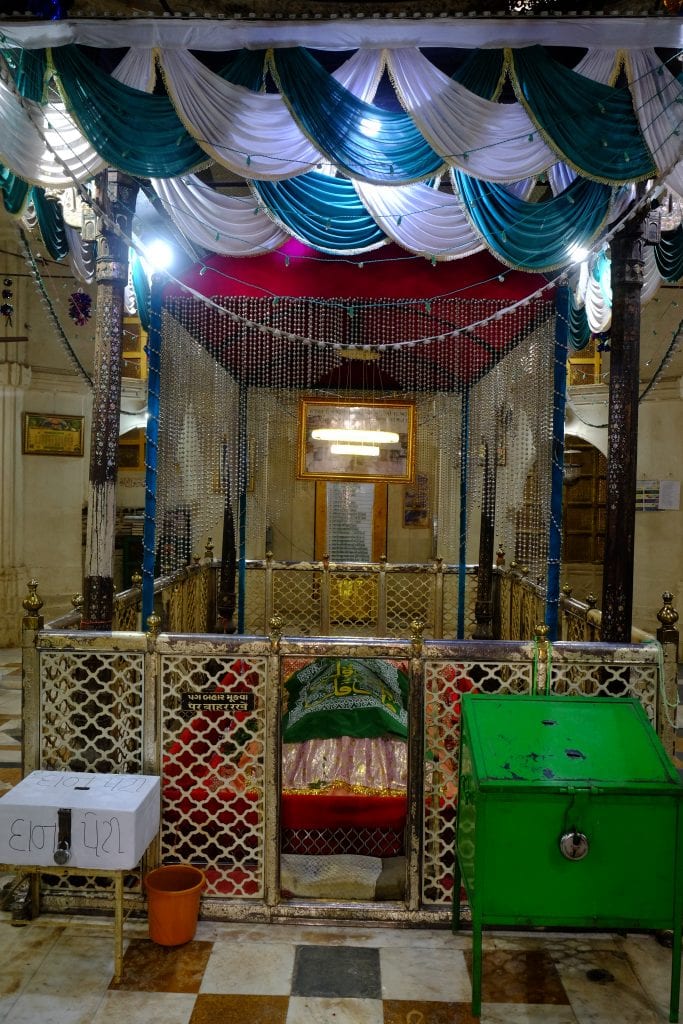January 2017 | BIPS Travel Grant
I travelled to India under a BIPS research grant during October 2017-July 2018 for my doctoral research at the School of Oriental and African Studies. Although I had originally planned to also visit manuscript archives and attend a language course in Iran, unforeseen circumstances prior to my departure prevented me from doing so. However, my trip to several manuscript archives in India was fruitful.
My PhD research looks at the interaction between Persian and Indian musicians and poets, primarily along Sufi networks within the Delhi and Deccani Sultanates and early Timurid India and their role in the development of Hindustani classical music. My research is conducted primarily through Persian-language biographical compendia, music-theoretical texts, and discourses and hagiographies of Sufi saints. I travelled to manuscript archives in New Delhi, Hyderabad, Patna, Tonk, Kolkata, Ahmedabad, and Aligarh. After arriving in Delhi in October, where I was affiliated with the American Institute of Indian Studies, I spent several weeks working on Persian translation with Mohammad Amir, a PhD student at Delhi University, and travelled to manuscript archives in Tonk and Ahmedabad in late November/early December. In Ahmedabad I visited the dargah libraries of the Pir Mohammad Shah and Auliya Chishtiyya dargahs. The Pir Mohammad Shah Dargah Library, along with its head librarian Professor Bombaywallah, was particularly helpful for its copies of malfuzat relating to Shaikh Ahmed Khattu (d. 1446), a Sufi saint known for his use of early hindavi poetry during the sama’ ritual. In late January and early February, I spent time in the Khuda Bakhsh Library in Patna, Bihar, looking at 18th century music manuscripts based on the work of the Persian music theorist Abd al-Qader Maraghi, and the poetry of Fakhr al-Din ‘Iraqi, the 13th century Sufi and student of Shaikh Bahauddin Zakariya. Following Patna, I spent two weeks in Hyderabad, working in the Salar Jung Museum Library as well as the Andhra Pradesh Government Oriental Manuscript Library. In Hyderabad I received manuscript copies of rare tazkirat relating to important musical figures such as Amir Khusraw, Hasan Dihlavi, and Amir Hussaini, such as an early illustrated copy of the Majalis ul ‘Ushaq and the Thamirat al-Quds min al-Shajarat al-Uns. I also received copies of rare malfuzat and tazkirat relating to the Suhrawardi Sufi Shaikh Bahauddin Zakariya, the Deccani Sufi saints Gesudaraz and Pir Hashem Alevi, as well as a number of music-theoretical treatises relating to both Persian and Indian music.
The manuscript libraries in Kolkata and Aligarh held some particularly important manuscripts, namely the malfuzat of the Ahmedabad-based Shaikh Ahmad Khattu Maghribi, a work attributed to Shaikh Hamiduddin Nagauri, and the Rushd-nama of Abdul Quddus Gangohi, all of which feature early evidence of the performance of Hindavi language poetry within the sama’ ritual. The Asiatic Society of Bengal was closed for renovation for much of April, and when I went in late May/early June, re-shelving meant that only a portion of their collection was available. However, luckily, they had a full copy of the malfuzat of Shaikh Ahmad Khattu Maghribi available. This text, of which there is one defective copy in the Dargah Auliya Chishtiyya in Ahmedabad, contains some of the earliest evidence of the performance of Hindavi language poetry within the khanqah. This, along with the Rushd-nama text of Abdul Quddus Gangohi in Aligarh, a Persian text featuring Hindavi poetry set to different pardas or ragas, will be the focus of one portion of my research into the changing forms of music-cultural production.
By examining the connections between these seemingly different strands of cultural history – the reception of musical texts, the histories of Persian and Indian poets and Sufis, and the production of early Hindavi Sufi poetry set to music – I aim to paint a picture of the journey of Indo-Persian art music from the khanqahs and courts of 13th/14th century Iran, Central Asia, and Hindustan to the development of Hindustani classical music forms in the 16th century. The next portion of my research will be to finish translating these texts as I begin to write up the first draft of my doctoral thesis. I am very grateful to the support that BIPS has given, and although my original research plans did not come to fruition, I would not have been able to complete the research in India without their assistance. While archival research in India can be somewhat daunting due to both the large amounts of bureaucracy encountered in accessing archives and the often exorbitant copying fees, it has been a fruitful and productive research trip, without which I would not have been able to complete my PhD research.
